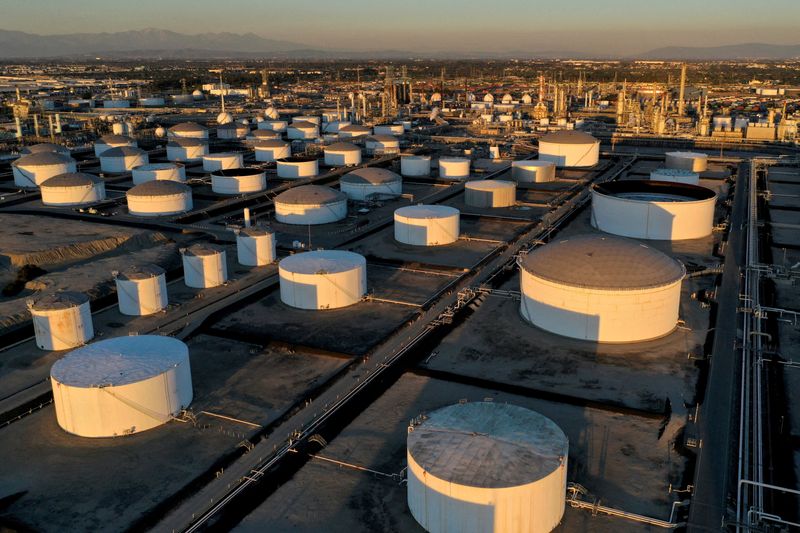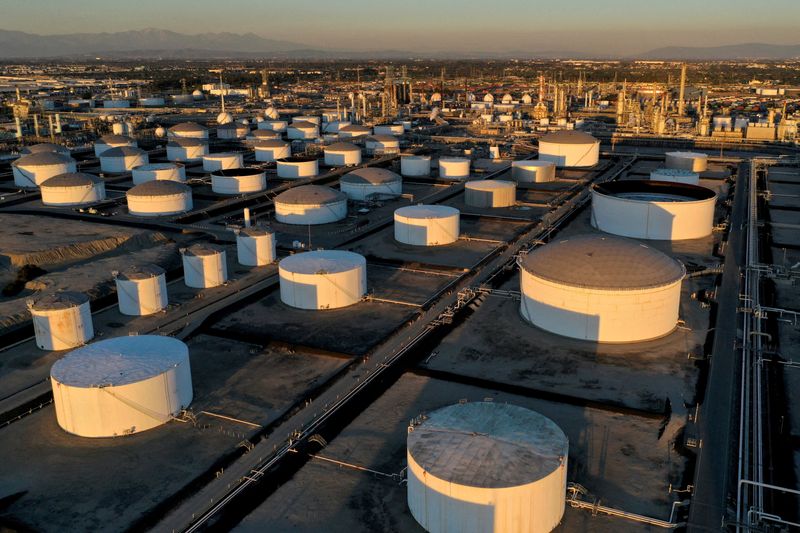
By Arathy Somasekhar
HOUSTON (Reuters) – Oil prices eased more than $1 on Monday as disappointing euro zone business activity added to worries about weak demand.
Brent crude futures for November were down $1.36, or 1.8%, to $73.13 a barrel by 12:27 p.m. EDT (1627 GMT). U.S. crude futures for November fell $1.50, or 2%, to $69.50.
Euro zone business activity contracted sharply and unexpectedly this month as the bloc’s dominant services industry flatlined while a downturn in manufacturing accelerated.
U.S. business activity was steady in September, but average prices charged for goods and services rose at the fastest pace in six months, potentially hinting at a pickup in inflation in the coming months.
China, the world’s top oil importer, is meanwhile battling deflationary pressures, and struggling to lift growth despite a series of policy measures aimed at spurring domestic spending.
“Disappointing economic numbers flowing from China along with a surprise slowdown in European manufacturing is placing crude demand at the lowest levels so far this year,” said Dennis Kissler, senior vice president of trading at BOK Financial.
Supply concerns stemming from Israel’s airstrikes on Hezbollah targets on Monday helped support oil prices.
After almost a year of war in Gaza, Israel is shifting its focus to its northern border, across which Hezbollah has been firing rockets in support of its ally Hamas.
“More attacks from Israel on Lebanon spawn fear that Iran will become more involved, which raises the probability of oil exports being at risk,” Kissler added.
A tropical disturbance near the Gulf of Mexico also is threatening oil supply. Shell (LON:SHEL) said on Sunday it would shut production at its Stones and Appomattox facilities in the region as a precautionary measure.

Both oil benchmarks rose more than 4% last week, buoyed by the U.S. Federal Reserve’s decision to cut interest rates by 50 basis points and signal further reductions in borrowing costs by end of the year.
Chicago Fed President Austan Goolsbee on Monday said he expects “many more rate cuts over the next year” as the U.S. central bank seeks a “soft landing” for the economy, where it controls inflation without crashing the labor market.
This post is originally published on INVESTING.



